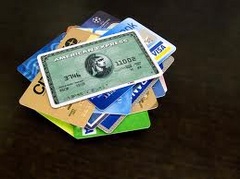 Those who bid at property auctions in New York are confronted with many potential issues. Auction properties are often attactive to first-time homeowners and to investors because they are perceived as being less expensive than comparable properties. If the property is residential, the bidding process differs based upon whether the property is a single-family house, a condominium unit or a cooperative unit. The type of property, whether it is commercial or residential, may have implications for tenants already in occupancy and whether such tenants may have statutory occupancy rights.
Those who bid at property auctions in New York are confronted with many potential issues. Auction properties are often attactive to first-time homeowners and to investors because they are perceived as being less expensive than comparable properties. If the property is residential, the bidding process differs based upon whether the property is a single-family house, a condominium unit or a cooperative unit. The type of property, whether it is commercial or residential, may have implications for tenants already in occupancy and whether such tenants may have statutory occupancy rights.
The auction process for a single-family home is similar to the auction process for a condominium unit, because both types of property are real property. The major difference is that common charges are levied by the Board of Managers of a condominium, allowing for the filing and foreclosure of a lien for unpaid common charges by the condominium Board. However, once the matter is in foreclosure, it is supervised and directed by a Court, meaning that same is litigated and requires a judgment of foreclosure issued by a judge before proceeding to auction. In a condominium, mortgage balances take priority over unpaid common charges. As such, in many cases, an auction bidder in an auction for unpaid common charges will likely be taking the unit subject to the outstanding mortgage, requiring the successful bidder to pay mortgage arrears and keep the mortgage current to avoid foreclosure.
Cooperative bidders will experience an auction process that is non-judicial (not supervised or litigated in the Court) unless a party requests that a Court issue an injunction to prevent or delay the auction. Since cooperative maintenance charges take priority over a share loan, it is possible for an auction bidder to obtain the unit for only the amount of the maintenance arrears and sever the security interest of the lender, provided that the auction is properly noticed. Our readers should note that this is an unlikely scenario because most lenders will choose to cure a maintenance default by paying it themselves, because a cooperative unit is likely to be more valuable than the maintenance arrears due to the cooperative.




 A
A  As the reader of this blog is probably aware, there has been a large increase in personal debt in the United States over the past decade. As credit cards, credit lines, and other non-secured loans have become more easily available, and the stigma against being in debt greatly diminished, the result is that many more people are in debt, and for larger amounts, than at any time in our country’s history.
As the reader of this blog is probably aware, there has been a large increase in personal debt in the United States over the past decade. As credit cards, credit lines, and other non-secured loans have become more easily available, and the stigma against being in debt greatly diminished, the result is that many more people are in debt, and for larger amounts, than at any time in our country’s history.